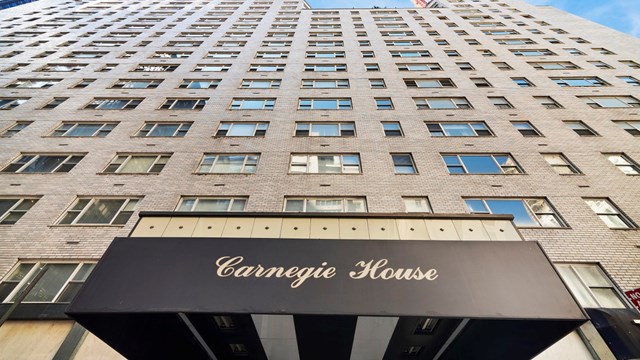
As the recession has lingered on since 2008, co-op and condo buildings throughout the city—from luxurious downtown buildings to middle-income and lower-income walkups—have found more of their residents in arrears with their monthly fees. Some of these people have lost jobs, and unemployment has forced them to prioritize (and sometimes skip) their monthly bills. Credit cards and mortgage payments often are paid first, followed by utilities and property taxes.
Building fees can get back-burnered when a resident’s finances are tight—partly because of the fact that the condo board members aren’t likely to show up on the doorstep of a resident in arrears and demand payment. Thus, residents who are in arrears often don’t immediately feel an impact from the failure to pay.
Even so, there is a real cost resulting from shareholders and unit owners not paying their fair share. Essential building maintenance sometimes cannot be done due to lack of funds, or important capital improvement projects such as new windows throughout the building may have to be put off indefinitely. Simply put, too many residents failing to pay their monthly fees could ultimately lead to extra fees for every resident—and this can be downright disastrous if a major repair comes up and the building is caught seriously short of funds.
The Real Impact
It’s a building, and being just one resident, not paying your monthly fees won’t have much impact, right? Wrong, says Phillip Miller, president of accounting firm Miller & Cusenza, PC in Manhattan. Residents often assume that the building will survive if they don’t pay on time, but it’s not true. “If the co-op doesn’t get its receivable fees, they won’t be able to meet their expenses. They won’t have enough to pay vendors, who won’t service the building if they aren’t paid,” Miller says.
While a percentage of monthly fee scofflaws aren’t doing so out of necessity, most residents who don’t pay do so because they've fallen upon tough times. “The vast majority of people who are not paying are in economic trouble,” says Jules Frankel of the accounting firm Wilkin & Guttenplan, PC in East Brunswick, New Jersey. But sympathy for neighbors notwithstanding, “The reality is that everybody else ends up paying for those who aren’t paying.”
For some residents, the biggest misconception regarding not paying their fees is based on a lingering landlord/tenant mentality. Though resident shareholders are technically the owners of their apartments, they tend to view the co-op or condo board and management as landlords rather than the elected representatives and employees they actually are. Such residents may view their board/management team as bill collectors or adversaries, and don’t see that not paying their fees directly affects their neighbors, says David Brauner, an attorney with the law firm of Windels Marx Lane & Mittendorf in Manhattan.
It’s not uncommon in buildings that have been converted from rental to ownership for residents to not really grasp that the resident-management relationship has changed. “The relationship may look and feel the same but fundamentally it’s very different,” Brauner says.
Act Now
Given these facts, and also the reality of needing to live amicably with one’s neighbors, boards and managers of buildings with residents who are in arrears should tread wisely while dealing with the problem. Making the proper moves to collect fees could ensure payment or do the opposite, dragging out the conundrum.
Faced with a resident who is not paying his or her monthly fees, some boards simply fail to act. The building might not have a standardized procedure for dealing with missed payments, and board members might let the problem go unchecked because they aren’t sure how to deal with it. In higher-end buildings, a few missed payments from a resident may not be a big deal but in buildings with tighter finances, missing payments affect everyone.
Depending upon the building’s bottom line, a board or management team could contact a resident about a missed or late payment after just one time. Miller recommends such a nip-it-in-the-bud approach. “If I were on a board, I’d contact a resident after one missed payment," says Miller. "After the second missed payment, you have to be aggressive. With condos, you really have to be very aggressive."
Quick action is needed in condos because the bar of financial responsibility on the part of the condo owner is lower than the bar for many co-op residents. When buying a New York City condo, a prospective resident’s financial state is not as deeply investigated as they would be if he or she were purchasing a co-op. “Many co-ops require that residents have monetary reserves,” Frankel says.
Most well-run buildings have a protocol for dealing with missed payments. If you are late ‘x’ number of days, a letter is sent to you from management asking for payment. After ‘xx’ days late, a late fee is assessed and a second letter sent to the offending unit owner. Following those steps, the matter is sent to the building’s attorney to handle.
Many buildings do have a bad debt expense allocated in their budget. But during hard times such as the past few years, it is possible for the number of residents who are in arrears to overwhelm a building’s resources and derail the management team’s best efforts. Because of this possibility, each board member should remember the fiduciary responsibility to act in the best interests of the whole building.
“Each board member needs to ensure that they have a process to quickly act when arrears reach a certain dollar amount and are a certain length of time outstanding,” Frankel says.
Consequences of Debt
Since the impact of residential debt to a building might immediately be felt by its management, some buildings might want to take legal action fairly quickly after finding a resident in arrears. Legal help is an important tool in dealing with a resident in arrears. After a third month of nonpayment of fees, a board might want to send the matter to its attorney, Miller says.
Some exceptions can be made by some buildings for residents who are in arrears but are hardship cases, industry experts say. Buildings that are running on very tight budgets won’t be able to allow such exceptions for very long.
The real day-to-day impact of residents being in arrears can be devastating to a building’s financial state. One Queens co-op building didn’t have enough money to meet operating expenses because there were so many residents behind in their payments. A significant percentage of residents in the building were unemployed, and the lack of funds meant the building’s management couldn’t get vendors to work in the building because they thought they wouldn’t be paid. As a consequence, the building was quickly falling apart from lack of physical maintenance.
Another building with similar woes needed its HVAC system fixed but its contractor balked at the job, fearing he wouldn’t be paid. The management had to hire another contractor at an exceptionally high rate of pay, just to get the job done.
In buildings with financial problems from residents missing payments, the ripple effect could be fast and severe. The building service world is small, and word travels fast—buildings whose management is failing to pay vendors in a timely fashion could quickly become pariahs.
“Contractors all know each other, and they want to be paid. To get any services, you’ll have to start putting money upfront [for work to be done],” Miller says.
Such a situation might call for the board putting a special assessment on all the residents, increasing the financial burden on the residents who are paying their fees on time.
First and foremost, the board must see that the building meets its obligations. “The fiduciary responsibility of a board is to ensure that enough money is coming in to protect the building,” Frankel says.
Disuniting Communities
The financial costs to a community with apartment owners in arrears can be quickly evident to everyone but the more insidious effects can amount to a breakdown in community feeling. People can become less friendly due to perceived inequities between them and their neighbors.
“When the majority of residents feel that the minority aren’t paying their share, it can adversely affect relationships,” Brauner says. “You don’t want to live in a building where people are glaring at each other in the elevator.”
Even more tangibly felt than feuding neighbors, having residents in arrears could impact the long-term solvency of a building. New FHA loan requirements for prospective buyers mean that certain buildings with serious financial issues aren’t always able to welcome into the community new residents, because those would-be owners can’t get FHA loans.
“This is an ironic issue, because certain buildings don’t want to be FHA-approved because they want the prospective resident to personally have the resources to get a non-FHA loan. In other buildings, FHA help is critical for buyers,” Frankel says.
The recent financial crash and resulting government bailout of financial institutions hasn’t made any of those companies free with a buck—the opposite is actually true. Lenders, in general, are looking at a building’s financial state before making a loan to a prospective unit owner. “A large amount of arrears in a building might make it hard for a buyer to get a mortgage,” Brauner says.
In essence, money does make the world go round. So make sure your co-op or condo building has the money it needs to make physical repairs and keep in the black by aggressively going after late or non-payers.
Jonathan Barnes is a Pittsburgh freelance writer and a frequent contributor to The Cooperator.






4 Comments
Leave a Comment